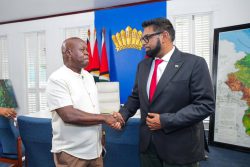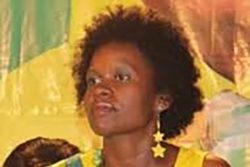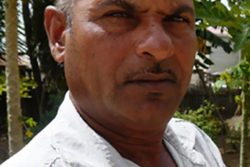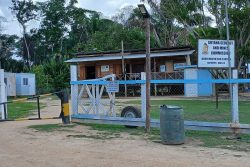Guyanese who were deported from Barbados after being subjected to early morning raids will be able to recount their experience to local authorities as the Ministry of Foreign Affairs is setting up a mechanism to facilitate this.
Minister Carolyn Rodrigues–Birkett made the disclosure during a brief interview with this newspaper yesterday as she emphasized that this will enable her ministry to approach its counterparts in Barbados with specific cases since the raids have been denied at the highest levels of that country’s government.
Since the announcement of the new immigration policy by the David Thompson administration several Guyanese have lamented the raids against them.
Two of them who have since been deported have testified to the same treatment and were sent home leaving many of their belongings behind.
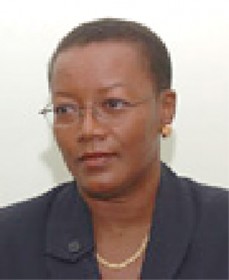
Rodrigues said on a recent visit to the island, she met with her Barbadian counterpart, Senator Maxine McClean and related her concerns with regards to how the policy was being implemented and the experiences which many Guyanese were encountering.
“I raised the issue of the homes of Guyanese being raided in early morning hours and that some were being taken off buses and just taken like that and sent home. They are not even given enough time to organize themselves for the return home,” she said.
According to her, McClean gave a similar explanation to the one offer-ed by Prime Minister Thompson, assuring that this was not the intention of the Barbados government. She has since committed to keeping in touch with her colleague in charge of immigration to discuss the matter and then give some sort of feedback.
Rodrigues said McClean also outlined to her some of the difficulties which the country’s government had been having in dealing with the issue, thus the reason for the policy. She added that while Barbados had the right to adopt the policy, “our concern is its implementation and what is happening there.”
“If people are illegal and they have to be deported the least they should do is treat them humanely,” the minister declared.
While in Barbados too, Rodrigues said she met with Guyanese who were not all necessarily undocumented. She said many of them attested to the treatment that is being meted out to some of their countrymen, including the early morning raids.
She said that she learnt that sometimes immigration officers would visit places where Guyanese congregate and many have been caught that way and deported. She added that it is felt too that because some Guyanese stand out among Barbadians they are very noticeable and make for easy targeting.
Asked about feedback from the Guyana Consulate in Barbados, the minister said that many persons have been seeking explanations about the policy. However she feels that some persons who know that they do not qualify for the amnesty may not want to share their experience or complain of any difficulties they are facing. However she said that there have been no fresh reports coming in with the same complaints but noted that this did not mean that it is not continuing.
“So we will put a notice in the papers and ask persons to come in and recount their experience. Because Prime Minister Thompson has given President (Bharrat) Jagdeo an assurance and Senator McClean has given me one too and they both have said it’s not the intention of the policy. So we will need specific cases to take to them,” she said.
Minister Rodrigues also pointed out that her understanding is that several persons would have gone to Barbados between 2006 and 2007 during the construction boom on the island because they were hired by various companies and had work permits and were there legally.
“Some of them are not people who went to take away from Barbados but also were held and we must recognize this. While they have a responsibility to get themselves properly documented the minimum right should be applied to them. It’s not an easy situation but we must be balanced,” the minister said.
With regards to the Guyanese response to the amnesty call and getting themselves regularized, Rodrigues said she was not able to garner any specific information in this regard from her counterpart.
However she said the ministry’s re-migration scheme still stands for those persons who have been overseas for four years and over, adding that persons could make use of the scheme.
Lip Service
Meanwhile, another CARICOM leader has joined in the debate, lamenting that while the region pays lip service to the “one Caribbean ideal” the reality is that individual countries may be focused on protecting job opportunities at home for their nationals.
This was an issue raised when the Barbadian policy was first announced. Many saw it as a direct move to keep the jobs for nationals only. Guyanese and other CARICOM nationals are sometimes perceived to be hard workers, resulting in easy access to employment outside their home country.
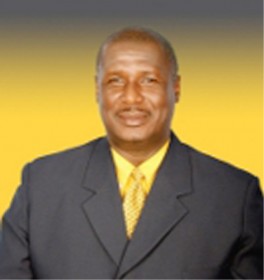
Several Caribbean media reports referred to the comments made by St. Lucian Prime Minister Stephenson King who was quoted as saying that “he wants his fellow Caribbean Community (CARICOM) leaders to take urgent action to facilitate the free movement of people throughout the region.”
“We have received complaints, and throughout the region there have always been complaints from St Lucians who travel to other countries, whether it is to Trinidad and Tobago, Barbados or Antigua, there are situations where St Lucians complain of either harassment or being denied entry and are sent back home,” the prime minister was quoted in the Jamaican Gleaner as saying.
St. Vincent Prime Minister Dr. Ralph Gonsalves had blasted Barbadian authorities for the treatment that some of his nationals had received in Bridgetown, adding that seemingly across CARICOM, some nationalities — including those from his country, Guyana and Jamaica — have been targeted unfairly.
According to his St Lucian counterpart, Gonsalves had a basis for observing that such actions go against the spirit of CARICOM’s regional integration process.
“This is not the kind of environment that we would want to establish within a Caribbean Community. We have to continue to pursue the ideals of one Caribbean and we have got to get over those hurdles and the prime minister of St Vincent does have a basis for making those statements,” King also said.
He contended that Caribbean leaders must act on the concerns about impediments to travel in the region and put measures in place to arrest the problem.
“We have a common purpose which is building a Caribbean nation. And we can’t at this stage begin to place doors at our ports of entry and begin to profile our nationals by saying “you are Guyanese, I am not going to allow you to come in,” said King, whose government recently ended an amnesty offered to immigrants living in St Lucia illegally to regularise their status, the report said.
“Fifty years ago, St Lucians moved to Guyana in droves, so if Guyanese now have the urge to travel, we cannot today begin to feel that our country is ours and ours alone,” he emphasized.
In an interview with this newspaper recently University of Guyana Professor Clive Thomas said he felt that the David Thompson administration’s targeting of CARICOM nationals in its crackdown on illegal immigrants was an act of profiling. He said he felt the action needed to be met with the strongest protest.
Professor Thomas voiced his disapproval particularly over reports that the homes of illegal migrants are being raided, calling it “degrading and discriminatory.” He said he also felt that it violates the spirit of the CSME [CARICOM Single Market and Economy].
“CARICOM has worked to promote an agreement aimed at creating a single economic space and so this is very offensive to CARICOM. We have a responsibility to speak out. We cannot allow the Barbados government to get away with this. We cannot condone such action, it is degrading, dehumanising, indiscriminate and inhumane,” he insisted.
Thomas questioned why it was that only CARICOM nationals were being targeted when nationals from other countries also overstayed their welcome in Barbados. “This is profiling and this is very offensive,” he argued.
